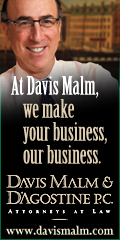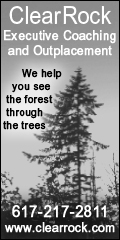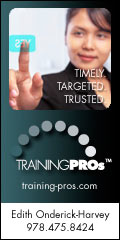NEHRA News
Northeast Human Resources Association
Putting activities, or stress reducers in place prior to employees being totally burnt out is how companies keep great people, and keep them healthy and capable. Managers need to know their people and have a 360 degree view of their lives.
For example—people know a great deal of travel causes stress for employees. Companies try to make sure people are back in their home city by noon on Friday to minimize that stress. While that may be one step, if an employee has a new baby that may not be enough. If a manager is not aware of what else is going on, they will not be able to keep as much stress away from a highly productive employee. They risk losing that person or at least losing the positive edge they bring. Proactive conversations about how things are going show a sincere concern, which is a main stay in retention.
- Identify high stress situations or roles. Companies may have seasonal situations (accounting firms), end of quarter times, M&A activities, regulatory visits, extensive travel etc. Develop a broad list of these times, and get in front of them to minimize increased stress.
- Address ways to minimize long term stress build up. Companies have on-site gyms for many reasons. Look at ways to make it easy for employees in high stress roles to develop healthy habits to eliminate stress over the long term. Time off, a local assignment, or a change in role for some period of time can also alleviate stress.
- Provide support. People in high stress roles often take on more than their share. If this is the case and they are high producers, provide assistance. Get the best support person to partner with them. Already done that? Get their assistant more support, so they can provide even more stress avoidance to the senior level employee.
- Make life easy. Certain organizations where long hours are the norm offer services to eliminate or at least minimize life interruptions. They provide on site banking, on site dry cleaners, car services, discounted or free meals, on site child care, or back up child care.
- Recognize burnout before employees do. Talented HR often people see the signs before employees are willing to admit to burnout. Know the symptoms. Train your managers to spot behaviors which indicate burnout, and discuss ways to deal with it immediately. Don’t let employees tell you when they can schedule a break. Do you want your surgeon to operate on you before or after vacation?
- Acknowledge impending burnout as a fact of business not a personal weakness. You may need to mandate a vacation, a restful or activity filled excursion. Pulling the iPad, Blackberry, and laptop away from an employee may not be easy, but it is often necessary. How will your employee be rejuvenated? Is it a work-related conference? A week-long hike? Time on the beach? Help them put plans into action.
- Burnout avoidance as a developmental opportunity. Good managers work on development with employees. Developing customized methods to avoid or deal with burnout should be on every manager’s employee review. Communicate about the risk of burnout, how employees feel rewarded, and how employees can be refreshed while on the job.
About the Author:
Elaine Varelas is Managing Partner at Camden Consulting Group, a provider of integrated talent management solutions for organizational and leadership development. Visit them at www.camdenconsulting.com.
Yesterday, I read one of those "10 Tips for..." type of articles on how to manage the Millennial or Gen Y employee. They included recommendations such as:
- Provide leadership and guidance.
- Listen to the Millennial employee.
- Provide challenge and change.
- Provide structure (i.e. clear expectations, goals, assessment of progress, etc).
One of the website’s readers posted a point-by-point criticism of the article, concluding with: "The advice given is good for employees of all ages. Contending that it is uniquely applicable to a new generation is nonsense."
While I agree with the rather prickly poster’s perspective that the author’s advice applies to all employees, I do think he missed the nuances the author was trying to convey.
More specifically, practices that are helpful for workers of any generation are even more critical with Gen Y employees because of the cultural milieu this generation grew up in: extremely involved parents, the self-esteem movement, unrelenting emphasis on fame and making your mark on the world, etc.
So, for instance, while providing leadership and guidance is just good management practice, regardless of the direct report’s age, it takes on greater significance with the Millennial employee. Given that Millennials have been described as the most coached and micromanaged generation (think "helicopter parents"), they, on average, want more attention and interest from their manager than would the "typical" Gen X employee.
Thus, simply writing off recommended practices for bringing out the best in Millennials as no different than with other generations, ignores the deal-breaker importance of these practices if you want to attract, retain, and engage the Millennial generation.
The Source of "The Gift" Gen Y Employees Are Handing You
So, when you look at what the research on what the Millennial generation wants in a work experience along with their unique attitude towards work, it’s hard to escape this conclusion:
"Gen Y employees want what everyone else wants in a work experience. However, if they don’t get it, they are far more willing to speak up...or leave."
While obviously not everyone in a generational cohort thinks or acts the same way, on average, Gen Y employees are known for being much more comfortable challenging authority and speaking their mind. Gen Y employees are also well known for not sticking around if they’re not happy.
While many managers and HR professionals tear their hair out over these tendencies, they miss out on the priceless information their Millennial employees are giving them because of these proclivities.
Gen Y Employees: Your "Canary in the Coal Mine"
Your Gen Y employees are the Canary in the Coal Mine in terms of your managerial practices and the work experience you deliver.
A quick synopsis of the term in case you’re not familiar with it: Long ago, before sophisticated technology, coal miners would bring a canary down into the mine shaft as their early warning sign that CO2 levels were getting dangerously high. If the canary keeled over, it was a good time to head to the surface.
Because canaries are more sensitive to CO2 levels than humans, they showed the effects before the men did. Thus, the canary’s increased sensitivity saved lives.
Your Gen Y employees are your Canary in the Coal Mine for those things that lead ALL employees to become disengaged. Things like:
-
An impersonal boss who only sees you as a tool to achieve his/her goals, and shows no interest in your well-being or professional development.
-
Outdated, nonsensical policies that make it hard to do your work.
- Lack of respect for your right to have a life outside of work.
- Being kept out of the loop, so you always feel like you’re laboring in the dark.
- A boss who only gives negative feedback, never praise or appreciation.
- No clarity around how your work matters and contributes to the big picture.
- Few opportunities to make a difference; to do something that truly matters outside of your routine tasks.
While ALL employees want these things, many of those from older generations tolerate them, rather than complain or leave. Instead, they will join the ranks of what the Gallup Organization calls ROAD Warriors—Retired on Active Duty. These employees who no longer care comprise 55 percent of the workforce, according to Gallup’s research. These are the people who say:
"I’m so mad, I am no longer going to work here...I’m not going to leave though...I’m just not going to work."
The fact that 55% of employees in the average organization are just going through the motions is only half the problem. The other half is that because they don’t speak up or leave, their employer doesn’t realize "CO2 levels are rising."
Thus, it’s easy for employers to go along blithely unaware of the huge price they are paying for ineffective management practices and organizational policies. Because these employees are not as vocal or willing to leave as Gen Y employees, it’s easy to think that:
- New employees don’t notice or don’t care about the sloppy, boring-as-watching-paint-dry orientation program and indifferent welcome they received.
- Conducting an employee survey and never reporting the results didn’t have an effect on morale and trust.
- When managers speak disrespectfully to their direct reports, it’s quickly forgotten by those employees, and leaves no emotional wake.
- Not asking employees for input over changes that directly affect their jobs is just something they need to get over.
Without dramatic feedback—either an "in your face" confrontation or high turnover—it’s easy for employers to lose millions of dollars a year in lost productivity and lost customers due to disengaged customers...and never even realize it’s happening.
But with Gen Y employees, there’s no mystery. They’re more than happy to let you know what you’re doing wrong. And that’s the hidden gift of this generation:
You don’t have to wonder about whether you are doing the things that prevent you from attracting, retaining, and engaging talent. You don’t have to worry about laboring under the illusion that all is well when it’s not.
Your Gen Y Employees Will Tell You...Or Leave
So no matter how cheeky they might seem in their delivery, or how annoying you find their lack of loyalty, they are giving you valuable information. It’s sort of like being told you have bad breath. It’s not pleasant news, but it’s better than not knowing.
So What to Do?
- Help your less vocal employees speak up. Banish the "suck it up" message that pollutes many organizational cultures. This is not a call to whiners, but a request for frank, adult-to-adult conversation about what you do as an employer that makes people want to stay and do their best, and what makes people polish up their resume. If you doubt the importance of making it safe for people to speak up, read my article, "The Movie Scene Every Manager Should Watch...But Might Be Afraid To..."
- Thank employees for speaking up. Do this both when it happens and later in a public forum. Share examples in your team and organization-wide meetings of how employee feedback is being used to make your organization a better place to work. This both communicates that management values employee input and it also energizes people, because they hear proof that they can make a difference, they do matter.
- Don’t devolve into an arrogant "It’s an employer’s market they’re lucky to have a job" mentality. While you may have the upper hand in terms of people being security-conscious right now, remember the ROAD Warrior phenomenon. Even if people don’t leave, poor management and organizational practices significantly reduce the performance of those who stay. In this economy—or any economy for that matter—can you afford 10, 20, or 30 percent less productivity than your workforce is capable of?
- Help your managers help you. Since an employee’s supervisor plays the most significant role in that employee’s performance and level of engagement, according to Gallup’s research as well as other studies, make sure your managers know how to do the things that lead to maximum performance and engagement. Make sure they also have the skills to engage employees in "crucial conversations" and foster honest, open dialogue.
- Involve your employees in making improvements. Doing this helps you in three ways. First, it taps into the human need to matter, to make a difference. Believing that your input matters and that you can make a difference are huge drivers of employee engagement. Second, involving employees in making improvements fosters an adult/adult relationship with management, rather than "kids complain to mom and dad" dynamic created when employees are encouraged to speak up about what’s bothering them, and management’s job is to come up with solutions. Third, engaging employees in finding solutions is a powerful antidote to the feeling of helplessness and lack of control many people feel during these difficult times. Solving problems and generating creative solutions triggers the biochemistry and emotions of confidence and success, which puts employees in a more productive frame of mind to face the big challenges ahead.
About the Author:
David Lee is an internationally recognized authority on organizational and managerial practices that optimize employee performance. He is the author of Managing Employee Stress and Safety, as well as dozens of articles on employee and organizational performance that have been published in trade journals and books in North America, Asia, Europe, and Australia. Visit his website at http://humannatureatwork.com.
The LINGOs eLearning Global Giveback Competition recognizes designers and developers who provide services to produce online courses for international nonprofit organizations. These organizations do important work in humanitarian relief, development, conservation and social justice. Many of them use e-learning as a way to provide cost-effective learning solutions to their personnel around the world, whether the staffs are based in relatively remote areas in Africa, Asia, and Latin America or working in organizational headquarters in the U.S., UK, or Europe. EnVision Performance Solutions has been providing learning and performance solutions to corporate, small business, and not-for-profit organizations since 1998.
Congratulations, Irene!
The John D. Erdlen Scholarship is awarded to the outstanding scholarship applicant. The scholarship is for $3,000 is awarded to a full-time undergraduate or graduate student at an accredited college or university. In addition to the award the recipient also receives a one-year NEHRA student membership. The Erdlen Scholarship can be received by a previous scholarship winner.
The Future Stars in HR Scholarship is awarded each year to a deserving full-time undergraduate or graduate student at an accredited college or university preparing for a career in human resources. This award is in the amount of $2,500.
Application information is available by CLICKING HERE. All applications and required attachments must be received at the NEHRA office no later than September 6, 2011. Final applicants will be interviewed by the NEHRA College Relations Committee and winner will receive their award at the NEHRA Annual Awards Breakfast on September 22, 2011.
Applications should be sent to:
Northeast Human Resources Association
Future Stars in HR Scholarship Awards
303 Wyman Street, Suite 285
Waltham, MA 02451
It will also ensure that your information is correct in the Member Directory. Once you log in, go to the "About NEHRA" tab and select Membership Directory and then click on Update my Membership Profile.
While you are updating your profile, you might want to consider joining one of the Community Forums or adding your name to one of the Listservs. An updated profile and connecting to one of the NEHRA Communities is a great way to maximize your membership and create your personal network.
If you need help with this process please do not hesitate to contact Carole Edson, Director of Membership, at cedson@nehra.com.
- To become a fan of NEHRA on Facebook, CLICK HERE.
- If you are already a member of LinkedIn, CLICK HERE to join the NEHRA LinkedIn Community!
If you are not already a member of LinkedIn, you will need to follow the easy steps to create your profile. Once your profile is completed you can follow the steps below to become a member of the Northeast Human Resources Group.
- Find the tab for "Groups" on your home page and select "Group Directory."
- Use the search function in the upper right and type in "Northeast Human Resources Association."
- Click on "Join this Group."
- This will bring you to a description of the group and you will be asked to make selections about your preferences for display the group logo on your personal page.
- Enter a contact email address, a digest e-mail address, delivery frequency, announcements and messages.
- Once you have made these choices click the button "Join Group."
- Your message will come to the NEHRA Group Administrator to verify membership and approve you for the group.
To Join a Community Forum Subgroup on LinkedIn
- Once you are a member of the Northeast Human Resources Group, select "Subgroups."
- Select all the groups you are interested in joining.
- Your request goes to the NEHRA Group Administrator for approval.
- You will receive a message that you are a member of this subgroup and you can begin to read and post information on the Subgroup page.
Current NEHRA Subgroups
- Learning and Development Community Forum
- Diversity and Inclusion Community Forum
- Consultants Community Forum
- Small Business HR Community Forum
- HR Technology Community Forum
- Talent Acquisition Community Forum
- Flexible Workplaces Community Forum
For more information or to sign up for this opportunity, contact the NEHRA office today at (781) 235-2900 or via email at info@nehra.com.



